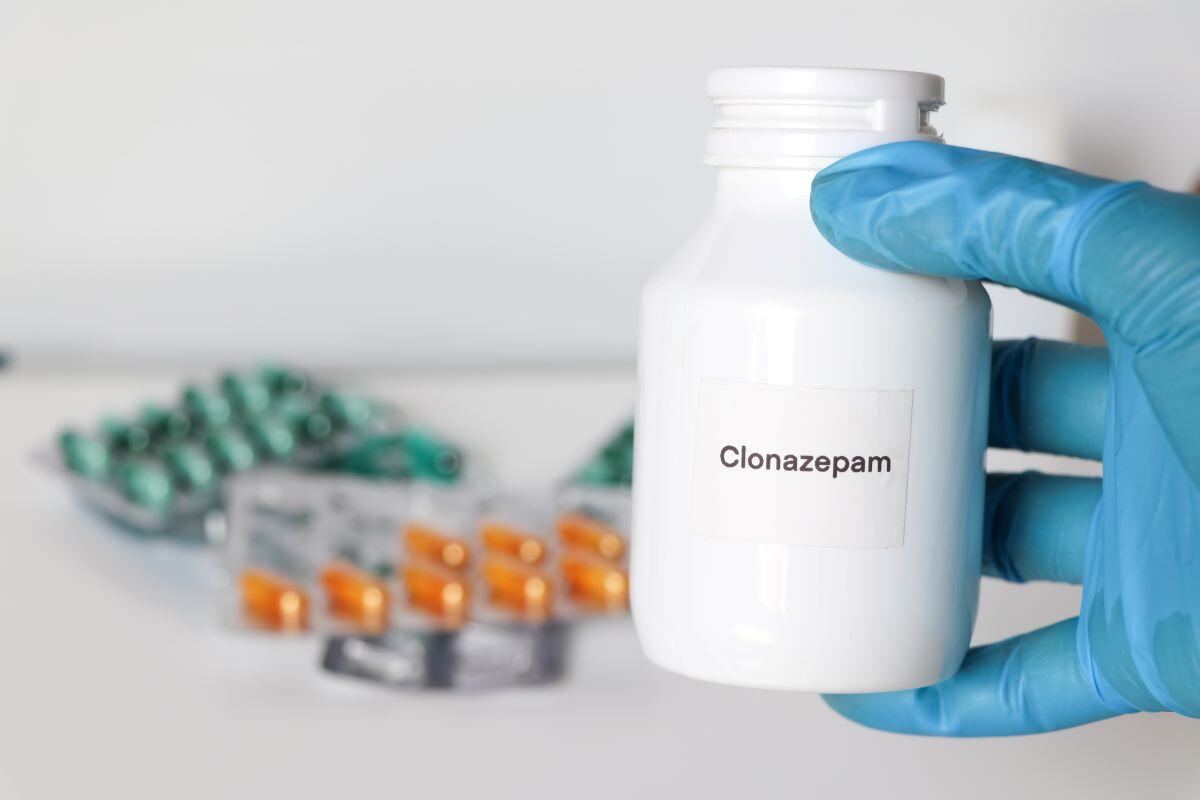Klonopin is a controlled substance, but it’s not a narcotic. A narcotic is a powerful pain-relieving drug that induces drowsiness and stupor. It dulls the senses and affects the user’s mental state. People use the term incorrectly to refer to all drugs that have the potential to be abused; however, narcotics only refer to opioid medications. Is Klonopin an Opioid?
Klonopin is not an opioid. Klonopin can be mistaken for an opioid since both are depressants that are dangerous and addictive when misused.
What Classification is Clonazepam?
Clonazepam, which is usually referred to by its brand name, Klonopin, belongs to a class of drugs known as Benzodiazepines. Benzos work by depressing the central nervous system, thus decreasing brain activity - resulting in a calmer and more relaxed state. They also increase the levels of gamma-aminobutyric acid (GABA), a brain chemical that decreases the stimulation of nerve cells.
Klonopin is mainly prescribed to those suffering from:
- Seizures in epilepsy (adults and children)
- Panic disorder (adults)
- Agoraphobia (adults)
- Generalized anxiety disorder
- Social anxiety
What Schedule Drug is Klonopin?
Klonopin is a benzodiazepine that is classified as a Schedule IV drug by the Controlled Substance Act. This is a common classification for drugs that have a low abuse potential but still pose risks when misused.
In the 1970’s, the Drug Enforcement Administration (DEA) initiated the Controlled Substances Act to prevent the manufacturing and distribution of drugs with potential for abuse and addiction. As a result of this act, clear regulations were made.
Drugs covered under the CSA (Controlled Substance Act) are split into 5 categories, each representing a level of abuse potential and medical use. Schedule I controlled substances are deemed the most potent whilst Schedule V is the least dangerous. The following are the 5 categories:
- Schedule I: Drugs that contain a high potential for abuse and have no medical use, e.g., marijuana, heroin, ecstasy, LSD
- Schedule II: Drugs that have high risk of abuse, addiction and dependence. Drugs in this schedule are illegal to possess or sell without a license. E.g., opiates, cocaine, certain narcotics, morphine
- Schedule III: These drugs pose a lower risk of substance abuse than Schedule I and II drugs but a higher risk than schedule IV and V. e.g., Ketamine, anabolic steroids, codeine, Tylenol 3.
- Schedule IV: Prescribed medications that are at a low risk for addiction development and substance abuse. E.g., Klonopin, Alprazolam, Valium
- Schedule V: Drugs that pose a very low risk of addiction and abuse, e.g., cough medicines with codeine and ezogabine.
Why is Klonopin a Controlled Substance?
Klonopin is a controlled substance categorized under Schedule IV since it has a low abuse potential but medical uses as well. People may abuse Klonopin due to its sedative effects, which can lead to dependence and addiction. Like many other benzodiazepines that are also Schedule IV controlled substances, Klonopin is usually only prescribed for short-term usage and immediate relief of panic attacks and seizures, due to the dependence that the drug could cause.
Treatment for Klonopin Addiction and Abuse
Klonopin can be very addictive as it promotes relaxation and calmness. Stopping taking the drug can lead to severe withdrawal symptoms which are difficult to manage alone. These are some of the withdrawal symptoms of Klonopin:
- Hallucinations
- Headaches
- Stomach aches
- Drowsiness
- Nausea
- Slowed cognition
- Sleeping issues
- Sweating
- Anxiety
- Dizziness
- Confusion
- Depression
- Fatigue
If you or someone you love is suffering from Klonopin addiction or abuse, the best option would be to enroll in an inpatient rehab. Detoxification is the first step of the recovery process, whereafter an inpatient or outpatient treatment will be recommended. Here, services like group therapy, individual therapy, behavioral therapy and other treatments will be offered as part of the recovery process.
Countless people who have suffered from Klonopin addiction have reached out to us with hearts filled with pain and sorrow, and left us, after completing our programs, with renewed hope and serenity. You can be one of those too! Our highly skilled and professional staff use evidence based therapies and personalized treatment plans to help you reach recovery. Contact us at Avenues Recovery today so that we could help you find the rehab center that’s closest to you, as well as the perfect treatment plan that best suits you and your needs. We’re here for you all the way, no matter what.



